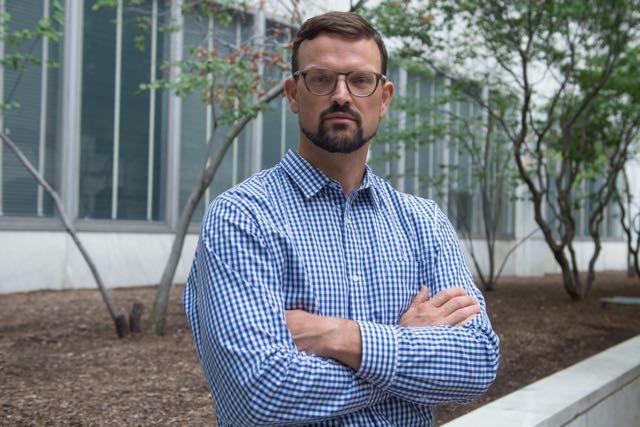Sustainability in Detroit, Part 1: The City Steps Up

Joel Howrani Heeres
Office of Sustainability, City of Detroit
The city recently released its Sustainability Action Agenda, which aims to achieve four main outcomes: healthy, thriving people; affordable, quality homes; clean, connected neighborhoods; and an equitable, green city. The action agenda sets 10 goals, as well as dozens of actions to meet them. The goals are:
- Increase access to healthy food, green spaces and recreation opportunities.
- Improve air quality and reduce exposure to pollution.
- Advance equity in access to economic opportunity.
- Reduce the total costs of housing, including utilities.
- Improve the health and safety of existing and new housing.
- Transform vacant lots and structures into safe, productive, sustainable spaces.
- Reduce waste sent to landfills.
- Make it easier and safer to get around Detroit without a personal vehicle.
- Enhance infrastructure and operations to improve resilience to climate impacts.
- Reduce municipal and citywide greenhouse gas emissions.
In developing this agenda, the city took an equitable approach to engagement, “really trying to listen and understand the needs of everyday Detroiters through the use of ambassadors, interactive websites, focus groups, town halls, surveys and SMS responses,” said Joel Howrani Heeres, director of the city’s Office of Sustainability.
Since the city released the action agenda, people have been “excited that the city is taking a serious stance on sustainability and climate issues and putting resources behind it,” he said. For example, “there has been a lot of excitement about the ability of people in multifamily properties to have greater access to recycling.”
Detroit is already moving toward these goals. In July, the city passed an ordinance aimed at cutting greenhouse gases by 30 percent in five years. “Achieving our climate goals will be challenging, although the recent greenhouse gas ordinance is good movement towards that. We will need to change our standard operating procedures about how we build, retrofit, and operate buildings in our city, not to mention transportation,” Howrani Heeres noted.
The city has also made progress on greenspace. “We have significant momentum towards increasing access to greenspace for Detroiters, having renovated 40 parks in the last four years, with plans to renovate 99 additional parks in the next 10 years,” he said.
What needs to happen to make Detroit more sustainable?
“First, we need to ensure that all Detroiters can be healthy and thriving. That means having access to economic opportunity, which we see growing with the [Fiat Chrysler Automobiles] plant and other new job opportunities. Additionally, they must have access to high quality, affordable housing. Finally, they must be able to take actions to better steward the planet, by using less energy, sending less waste to the landfill, and to be able to thrive in the face of the climate crisis.”
How is the city poised to become more sustainable than it has been in the past?
“We are embarking on the largest recycling expansion in the city’s history over the next year. We are embarking on an ambitious climate agenda to lower both municipal and citywide emissions. We are continuing the largest expansion of non-car infrastructure for any city in North America. Finally, I think that more and more people realize that a healthy environment is not a luxury, but is rather deeply intertwined with their own quality of life.”

